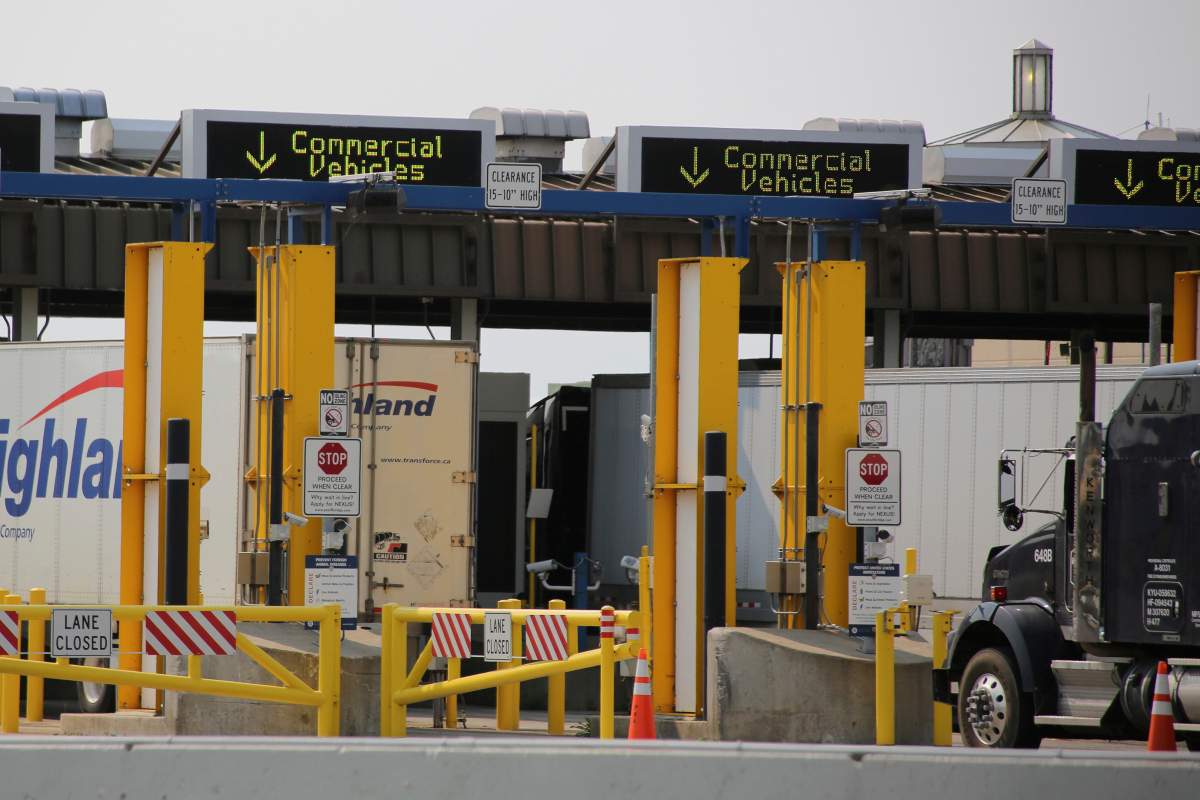The United States has made no decisions about when or how to reopen the border with Canada, the White House said Thursday in response to reports suggesting American patience with the closure has run its course.

Press secretary Jen Psaki said she was not aware that any decisions had been made about the border beyond last week’s news that the restrictions, which have been in place since March 2020, would be extended to June 21.
A media report Wednesday out of Point Roberts, Wash., a border community hit hard by the restrictions, cited anonymous sources with U.S. Customs and Border Protection as saying the closure would end by June 22.
“It was just extended for about a month, I think, so that’s around that timeline,” Psaki told a media briefing.
“I don’t think a decision has been made, that I’m aware of, about what would happen after that.”
Officials in Prime Minister Justin Trudeau’s office did not explicitly confirm or deny the report, pointing instead to his insistence that it would take 75 per cent of Canadians getting vaccinated before restrictions can be lifted.

“Conversations are ongoing constantly with the U.S. administration because there is much eagerness to get back to normal on all sides,” Trudeau said Thursday.

Get breaking National news
Step 1, he said, is to get the outbreak down to a stage where minor flare-ups can be effectively managed and snuffed out without risk of spreading more broadly. Step 2 would be that vaccination threshold.
“Getting the vaccination numbers up above 75 per cent across the country is going to allow for a much better posture on reopening, including around what we do with the U.S. border and international borders.”
Thanks in large part to the fact that COVID-19 ran so rampant through the U.S. throughout 2020, Canadians have been far less eager to ease the border restrictions than their American counterparts, polls have suggested.
But the robust rollout of vaccines has made some lawmakers in the U.S. impatient.
Canada is now outpacing the U.S. in terms of people who have received at least one dose — 53.5 per cent and 49.3 per cent, at last count — while some 40 per cent of Americans are fully vaccinated, compared with less than five per cent of Canadians.
“I think it is time for us to develop a plan,” Vermont Gov. Phil Scott said Thursday during a panel discussion hosted by the Conseil du patronat du Quebec, the province’s largest employers’ group.
Scott said the U.S. could be doing more to help Canadians get their hands on second doses of the vaccine, and expressed support for the idea of requiring travellers to show some sort of proof of vaccination in order to cross the border.
“There’s got to be a way to do this, and I think maybe some sort of a (vaccine) passport, at least during the transition, might be helpful.”
New York Rep. Brian Higgins, one of the loudest U.S. voices to date on reopening the border, has been urging the two sides to come up with a plan, including allowing Canadians to travel to the U.S. in order to get a second dose.
Higgins wrote to New York Gov. Andrew Cuomo last week urging him to allow Canadians to take advantage of vaccination appointments that are going unfilled in the state in order to expedite lifting the border restrictions.
“If there is excess supply of the vaccine, we should do everything in our power to see that those doses do not go to waste,” Higgins wrote.
“The stakes of this pandemic are too high to do anything less.”







Comments
Want to discuss? Please read our Commenting Policy first.